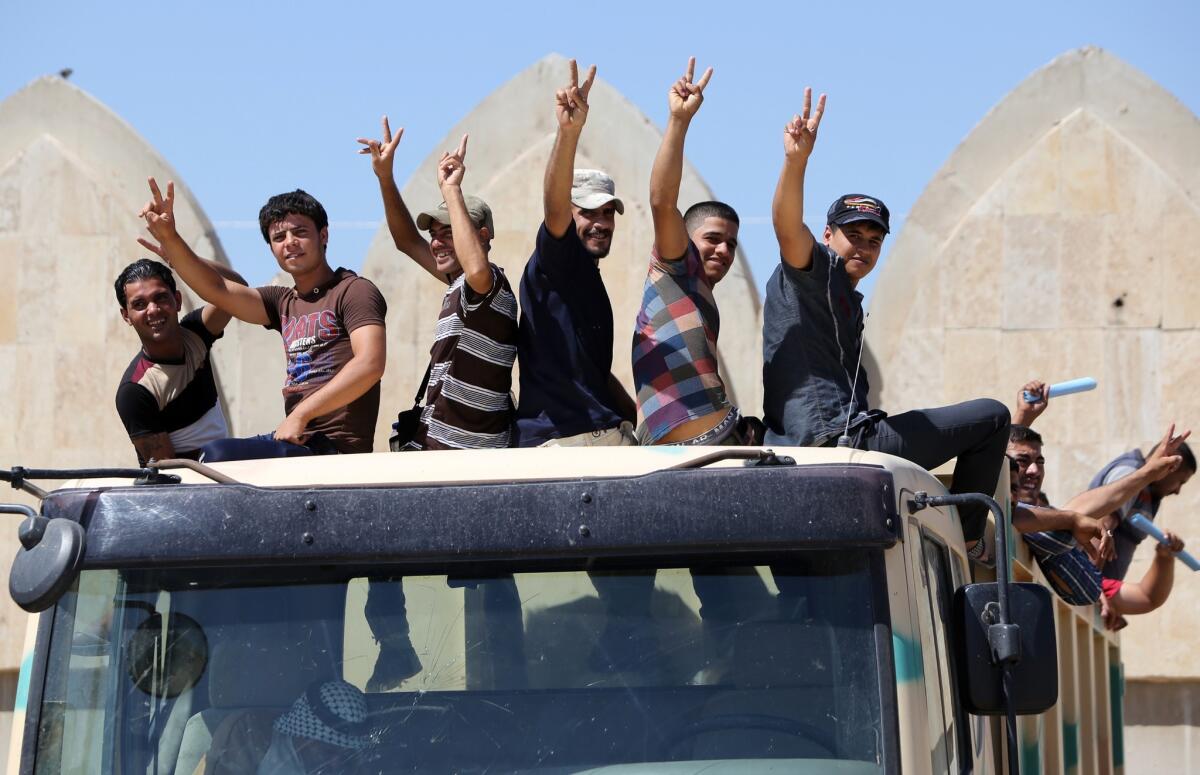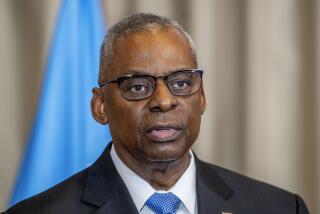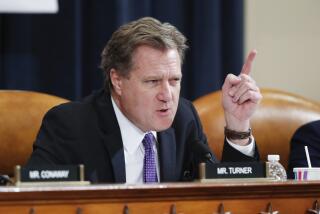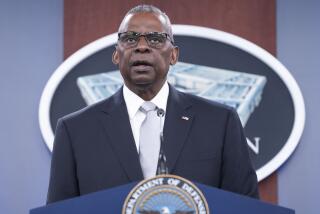U.S. lawmakers warn of danger from Iraq militants

- Share via
Reporting from Washington — Members of Congress and retired military officials called Sunday for the U.S. to more actively help the Iraqi government in response to the lightning-fast advance of Sunni Islamic fighters to areas 45 minutes outside Baghdad.
The Obama administration should be willing to directly engage Iraq’s neighbor, Iran, to fight off the Sunni militants, some said.
Speaking on CNN’s “State of the Union” talk show, retired Gen. Paul Eaton, who was formerly in charge of training Iraqi security forces, called Iran a “natural ally” in a possible campaign against the militants known as the Islamic State of Iraq and Syria, or ISIS.
ISIS, an extremist Sunni group, considers Shiite Muslims to be apostates, including the Alawites who lead the Syrian government and the Shia majorities in Iraq and Iran.
Sen. Lindsey Graham (R-S.C.), who serves on the Armed Services Committee, called for the U.S. to talk directly with Iran to devise a plan to stop what he characterized as an ISIS march toward Baghdad.
“If ISIS is not dealt with, that’s the staging area for a new attack on the United States,” Graham said on CNN.
Iranian President Hassan Rouhani said Saturday that Iran would “consider” working with the United States, despite decades of enmity, to bolster the shaky Iraqi government, with which Iran has strong ties. He added that the government of Iraqi Prime Minister Nouri Maliki had not yet contacted Iran for assistance.
Republicans such as Graham and Michael McCaul of Texas, chairman of the House Committee on Homeland Security, have called the crisis in Iraq the worst national security threat the U.S. has faced since the Sept. 11, 2001 terrorist attacks.
Graham is urging President Obama to launch airstrikes against ISIS units in Iraq. But military experts such as Eaton cautioned against airstrikes because of the likelihood that strikes against ISIS positions in Iraqi towns and neighborhoods would also kill civilians.
“The optics of bombs landing on friendly Arabs are very bad optics for the United States,” Eaton said.
Eaton and retired Gen. Peter Chiarelli suggested sending American military advisers to Iraq to shore up the Iraqi military.
Obama has sent an aircraft carrier to the Persian Gulf armed with bombers, and the U.S. could also launch drones from Turkey. But on Friday, Obama said the U.S. will not send ground troops back to the country.
“Ultimately, it’s up to the Iraqis as a sovereign nation to solve their problems,” Obama said Friday.
The members of Congress and the military experts also urged the U.S. to push for a political solution in Iraq that would give the country’s disgruntled Sunni minority a greater voice in the government. Maliki and other Shiite leaders have strenuously resisted previous suggestions that they share power with the Sunnis, who were the power base for the Iraq’s former dictator, Saddam Hussein.
“[Defense Secretary Chuck] Hagel and [Secretary of State John F.] Kerry need to be in the region, getting a regional strategy together with our allies to deal with this situation because, you know, look, without their cooperation against the extremists, this is not going to happen. They’re not going to do it on their own. They need us to lead them, and we’re not leading right now as a nation,” said McCaul.
More to Read
Sign up for Essential California
The most important California stories and recommendations in your inbox every morning.
You may occasionally receive promotional content from the Los Angeles Times.











